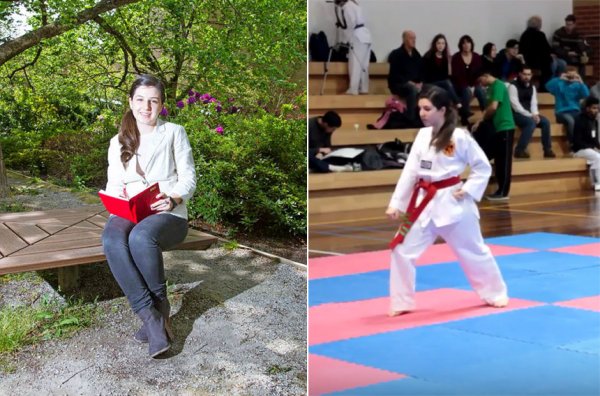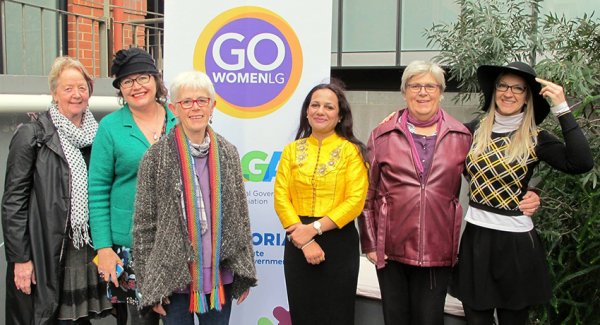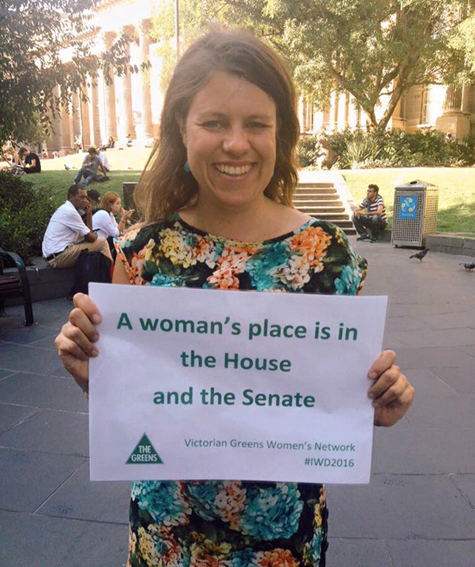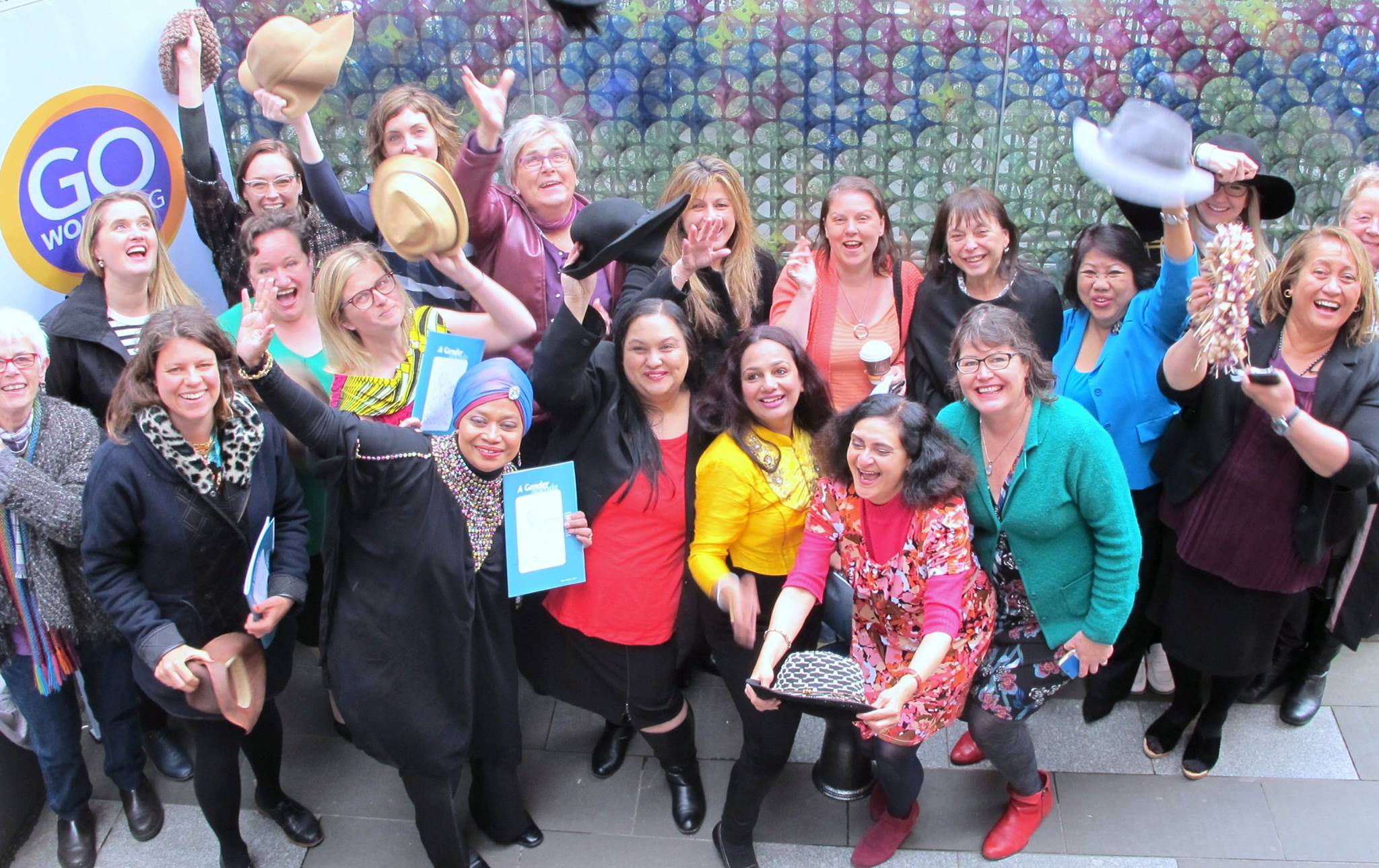Not many 19 year olds can claim to be the youngest female councillor elected in Victoria while gaining a black belt in Taekwondo. Newly elected councillor Emilia Sterjova (Whittlesea Council) is just that and more. She says:
“I was inspired by my mother Vanessa to get involved in politics and social justice issues from a young age. Now, I want to be a voice for youth on council. I can also be a person that young people can talk to without feeling intimidated as I will be very approachable”.
It is this passion for community service and advocacy that makes women such as Emilia a vital asset to local governments nationwide. As women we are young, old, Indigenous, migrants, refugees, queer, differently abled, carers, of different backgrounds, class, race, religion, and the list goes on. We can change the world and thinking local is a good way to start.

Councillor Emilia Sterjova.
Victorian voters elected a record number of women councillors in the October 2016 council elections. With 725 women standing and 243 elected, women now make up 38% of Victorian councillors. Even better, a cursory scan of the list of candidates shows greater diversity among women than previous elecitons.
Victoria now has a record number of 18 councils where women account for 50% or more of the elected officers. Overall, 46% of all councils have a ‘critical mass’ of women (40% or over).
Victoria now has a record number of 18 councils where women account for 50% or more of the elected officers. Overall, 46% of all councils have what some refer to as a ‘critical mass’ of women (40% or over). And it wasn’t only the major parties in which women were successfully elected, but a number of women were voted in as Independents.
How did this happen?
Not overnight!
The seventeen-year campaign for more women in local government in Victoria is achieving results, with the latest effort through the GoWomenLG2016 Project co-funded by the VLGA and the Victorian Government, with wide support from local governments and communities.

Blog author Linda Bennett, VLGA, third from left.
The magic ingredients for women were partnerships, useful resources, connections, events and a statewide info hub with online, phone, email and face to face support for those interested in candidacy.
The magic ingredients for women were partnerships, useful resources, connections, events and a statewide info hub with online, phone, email and face to face support for those interested in candidacy.
What now?
Despite the increase in female representation, there is more work to be done to boost diversity in every local council across Victoria: for example, thirteen councils (up from 10 in 2012) have only one woman councillor. And nearly 1 in 5 voter electorates had no women standing at all!
The story is not just about getting elected – the act of running for council is itself a step forward for women’s active citizenship. It opens new doorways for effective change-making by candidates whether elected or not.
A diverse group of women were among those at the forefront of this change making in the 2016 elections, including candidate and now Councillor, Steph Amir (Darebin council), who told GoWomenLG:
“As a young queer woman, one of my motivations was wanting to show other young women that they deserve to be represented and become leaders. I also feel strongly about equality and fairness, and hope to use my position as a councillor to continue to improve equality across the council, including a focus on LGBTIQ inclusion and ensuring that everyone feels welcome.”

Councillor Steph Amir.
I have seen again and again that when women work together in and with their local governments they achieve great things for their families, communities and themselves. I feel incredibly privileged to have met and worked with so many amazing women.




